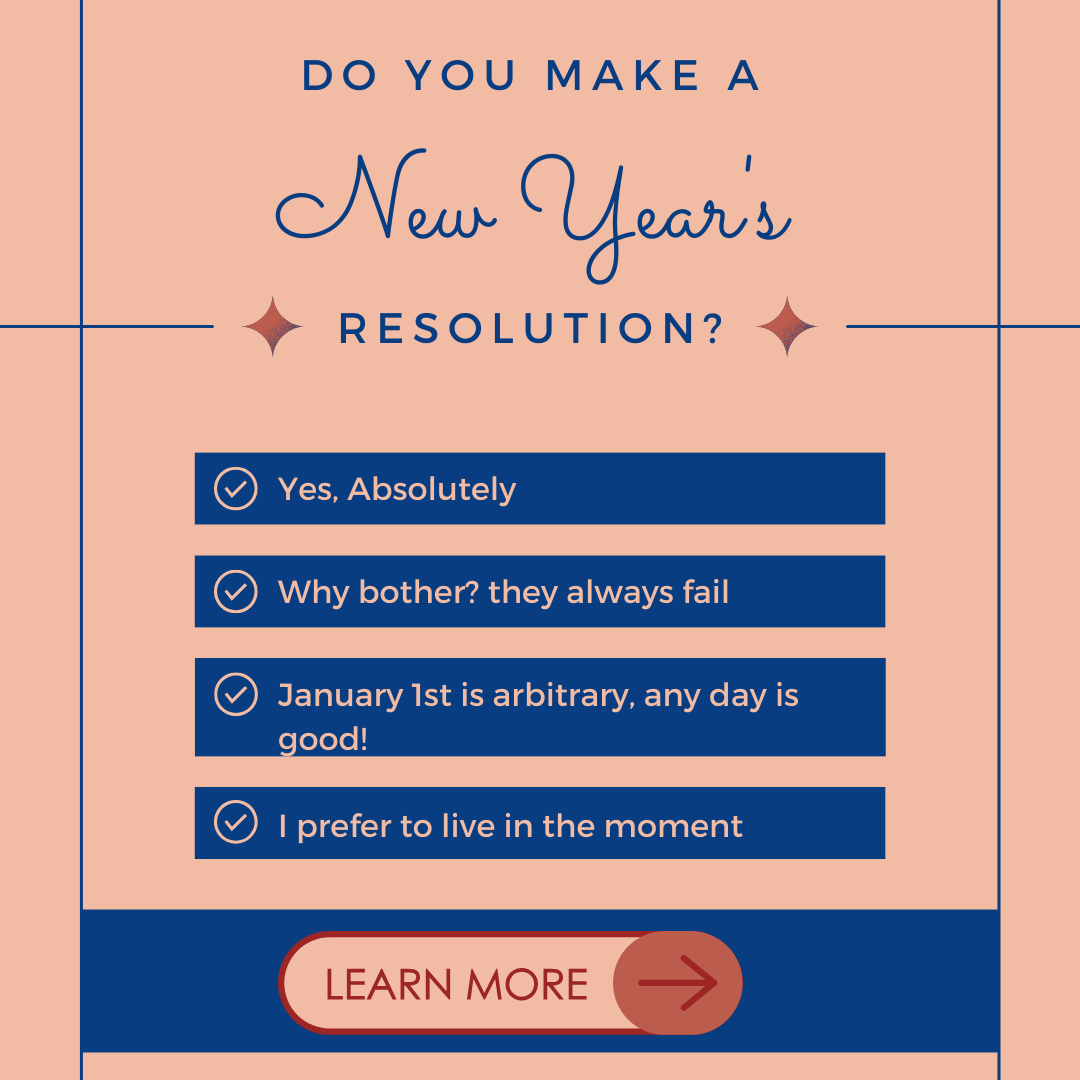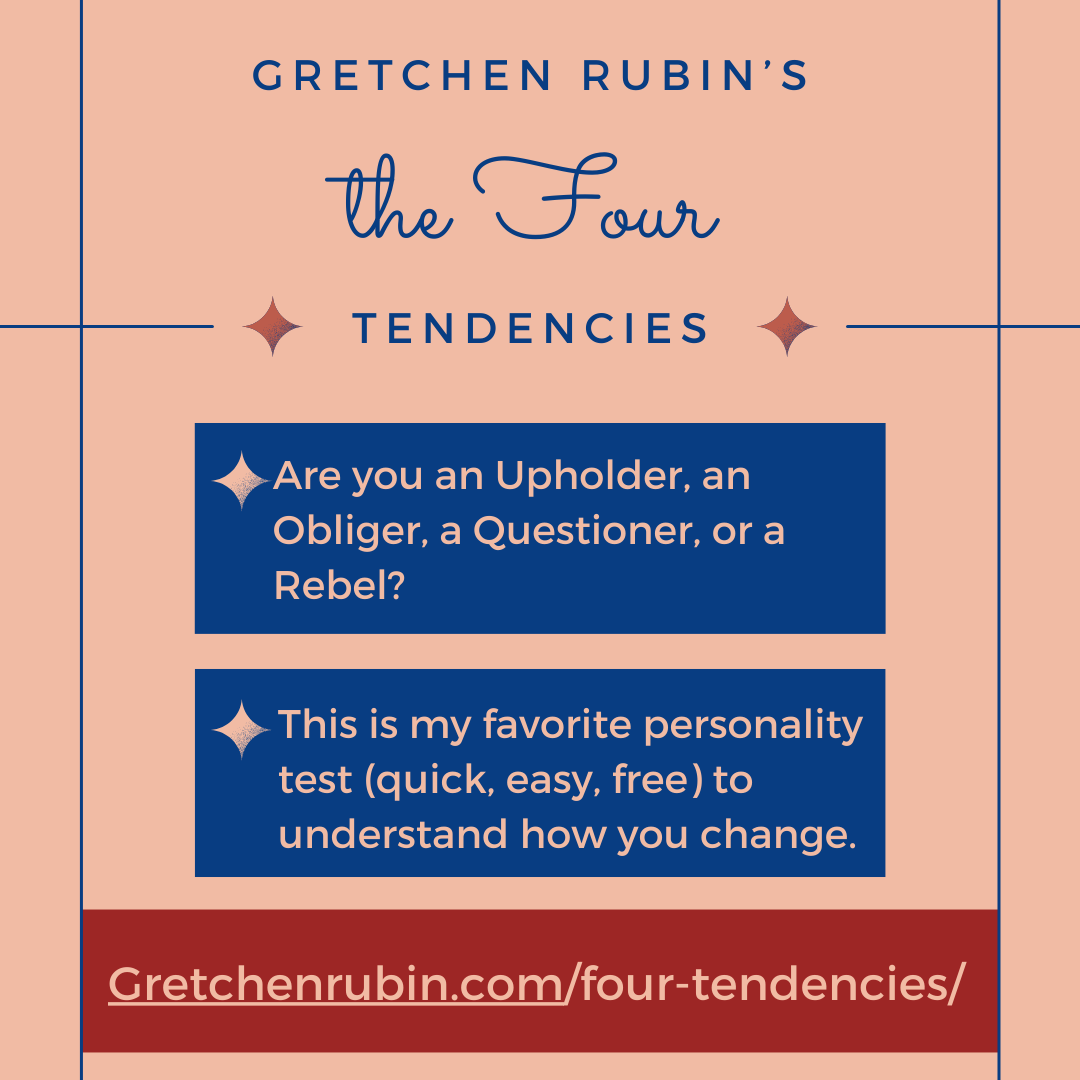Clutter, Organizing, and your Personality
What’s your Personality Style?
I am a big fan of personality quizes. I spent many hours as a teenager taking all the quizes in my many copies of Seventeen magazine. Since then, I’ve taken many research-based personality inventories as well. My favorite, by far, is Gretchen Rubin’s The Four Tendencies. She has a book, but also plenty of information on the web, including an easy quiz to find out what personality type you are. Here’s a link to info about The Four Tendencies and the quiz!
Clutter and your Personality
Your personality (or tendency) affects everything you do. Presented with the same situation, different folks will respond differently. Of course we have varied backgrounds and experiences, but personality plays a role too!
Why does clutter build up?
Why does clutter build up? There are many reasons that go beyond personality such as the way we grew up, history of trauma or difficulty around cleaning and home tasks, mental health difficulties such as depression, anxiety or OCD, neurodivergence, physical limitations such as fatigue, low energy and medical conditions that make it difficult to complete desired goals. The reasons are as varied as the people themselves are.
What will help you take care of the clutter and finally get organized?
Again, the answer is likely more individualized than we might think. One easy facet to consider is your personality. Gretchen Rubin’s easy quiz places you in one of four categories (tendencies). You may find that you have a main tendency and then also a bit of a secondary tendency. The four categories are: Upholder, Questioner, Obliger and Rebel. Each tendency will benefit from a different strategy to help them change and finally get the home of their dreams!
Getting Organized for Upholders
Upholders are generally able to meet both inner (their own) and outer (others’) expectations. They typically are rule-followers and once they know what the expectations are, they do it. Upholders benefit from clear expectations, goals and timelines. They may benefit from the accountability of having a professional organizer help them get started if they are feeling overwhelmed or unsure. The professional organizer can then create some clear expectations and structure so that the individual knows how to proceed. The professional organizer might help by following up and answering questions the person may have as they go along.
Getting Organized for Questioners
Questioners love to ask questions and research things (it’s me!). They are skeptical at first, but once they evaluate and believe a course of action is the best choice (most efficient) they are typically able to move forward and meet expectations. For me, I watched all the tiny house shows and movies on minimalism, read the books of many prominent minimalists, listened to podcasts and consumed all I could about the industry. After going through a whole house decluttering course online, I was ready for action and to experience the joy of owning less through purging my own home. There are plenty of examples online and through social media of how beneficial decluttering and getting organized is. As soon as I turned off the TV, I was always inspired to go spend a half hour purging some things!
Getting Organized for Obligers
Obligers excel at meeting the expectations of others but struggle to meet their own goals and needs, always putting others first. Framing the benefits of decluttering and getting organized may benefit obligers. If they feel the folks they are living with are counting on them and this is a service to others (family members, roommates, children, spouse) they live with, they may feel more motivated and able to declutter. Obligers likely will also benefit from external accountability such as a decluttering partner, professional organizer or friend who can help. They could also join an online decluttering challenge or support group. Having publicly declared goals that others follow up and ask about will help maintain momentum. Clearly, hiring a professional organizer to partner with an obliger would be extremely helpful if they are having difficulty on their own.
Getting Organized for Rebels
Rebels like to rebel (see what I did there?!) and resist inner and outer expectations. They are living on the edge, in the moment, and enjoying life. No one can tell them what to do, not even themselves! This creates a unique challenge for achieving goals. Rebels embrace novelty, adventure and freedom. Again, framing the project can be meaningful. Rebels can benefit from focusing on their overarching motivations such as having more time and freedom that comes from reducing clutter and the maintenance, care and cleaning of items. Rebels may benefit from decluttering spontaneously when they feel like it for as long as they want to and focusing on what exciting thing they will use their new space and freedom for.
In Conclusion
For me, learning that I am a questioner was a meaningful moment. It brought clarity to many of my actions both historically and now. I also learned that my husband is a different tendency than I am. This helped me understand his differing priorities and how to collaborate better with him on all the tasks of life. I hope that you will enjoy learning about your tendency and that information will help you find strategies to make the changes you are looking for in your home.



